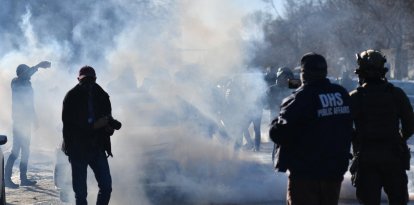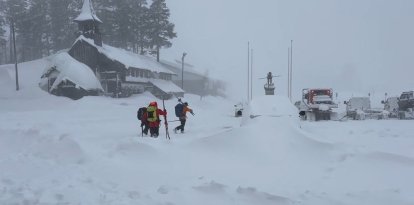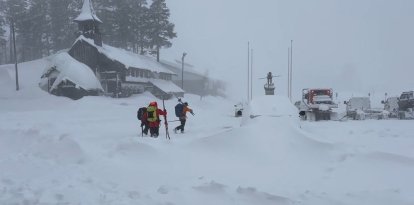Red Flag Warning: Elevated fire risk in five states over the next several hours
Parts of Missouri, Illinois and Kansas are under a warning Friday due to dry vegetation and gusty winds. On Saturday the focus will shift to Arizona and New Mexico.

File image of a firefighter battling a fire
Alarms sounded in the central and southern parts of the country for an elevated fire risk. The National Weather Service (NWS) warned of gusty winds and dry vegetation, coupled with temperature spikes in the central Plains. These conditions are ripe for a spark to turn into a fire.
Specifically, the NWS issued a "Red Flag Warning" for most of Missouri and parts of western and southern Illinois. Yet another was issued for eastern Kansas. In all cases it is expected to start at 10 a.m. and end at 8 p.m.
"Avoid actions which could inadvertently start a fire," they advised from the NWS in St. Louis. "Properly extinguish all flames including cigarettes. Avoid any outdoor burning."
That "elevated" risk warning will lessen by Saturday. The focus will then shift south, where even worse conditions are expected: the Storm Prediction Center forecast "critical fire weather" conditions in sections of southeastern Arizona and extreme southwestern New Mexico.
What is a Red Flag Warning?
How to respond to a Red Flag Warning
Experts from the Ready, Set, Go! (RSG) program recommend a series of actions prior to the warning, during the warning and if a fire starts.
The pre-warning advice includes taking care of vegetation around the home, creating a "defensible space" of at least 100 feet. These actions include mowing overgrown plants and keeping lawns short.
The key advice during a warning boils down to avoiding "any actions that may cause a spark or produce a flame," from flicking a cigarette butt on the ground to lighting an outdoor campfire. It is also important to exercise caution while using garden tools, such as avoiding turning on lawn mowers on dry grass.
Just as important is being aware of updates from local authorities and being prepared to evacuate if necessary. The latter is even more important in the event of a fire in the area.

























